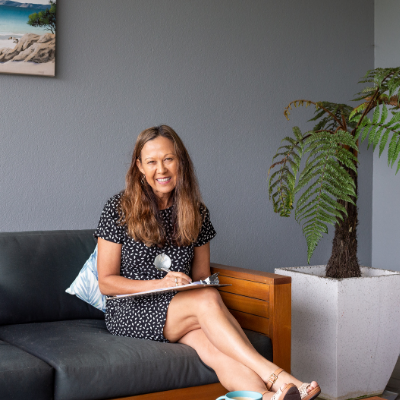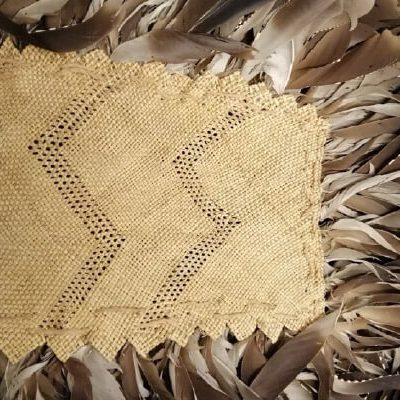Creative Patapatai
Writer Lee Murray chats to CBOP about the view from the Minden Lookout, the invaluable impact of creativity during lockdown, and her advice for an aspiring creative person… (Hint: just start).
Your occupation, job title, artistic discipline (or very brief description of what you do)
I’m a full-time writer and editor of mainly speculative and dark fiction.
What cities/towns have you lived in (or spent more than a few months in) beginning with the place of your birth?
I was born in Putaruru, and spent my first couple of years there, before we moved to Kamo in Whangarei, where I started school. My dad was in the bank and in those days the policy was to move staff about the country (I believe to avoid fraud), so no sooner had I learned to read, we were off again, this time to Taupō, where we lived for five years, but in three different houses. During this time, my parents bought a bach at Pukehina Beach, so we spent all our weekends in the Bay, right through until my teenage years, when school sports fixtures, music exams, and other busyness got in the way. By the time we moved to Hamilton, I was eleven, Dad had left the bank, and I had three siblings. We remained in Hamilton throughout the remainder of my schooling, and when Mum and Dad moved to Tauranga in the mid-1980s, I stayed on to go to Waikato University.
It was there that I met my husband, an Otumoetai old boy. We might have come back to Tauranga, but instead we collected up some science degrees, got married, then headed off to England on UK grandparent entries. The New Zealand dollar didn’t buy much in those days! We stayed with my cousin and his wife for a couple of months in Middlesex before moving to Radlett in Hertfordshire. But we weren’t there for long, just a year, before my husband was relocated to Paris, where we spent seven delicious cheese-and-wine filled years. Our daughter was born in the Clinique du Chateau de la Maye—the former home of Edward and Wallis Simpson which had been repurposed as a boutique maternity hospital. When she was two, we loaded up the packing boxes and returned to New Zealand, building a home in Tauranga, with two sets of doting grandparents living close by. Three years later, just after our son was born, my husband was head-hunted by a US company, so we rented out the house and set off again, this time to Wisconsin, USA for four years, although I tended to bring the children home most summers for an annual dose of Kiwi sunshine and hokey-pokey. We returned to New Zealand proper in 2003-2004, and since then, apart from a brief stint in Wellington and the Hutt Valley (too cold!) we’ve lived in Tauranga, in Bethlehem and in Welcome Bay. Looking back, it seems I’ve been a bit of a yoyo, always coming back to the Bay and particularly to Tauranga, my spiritual home.
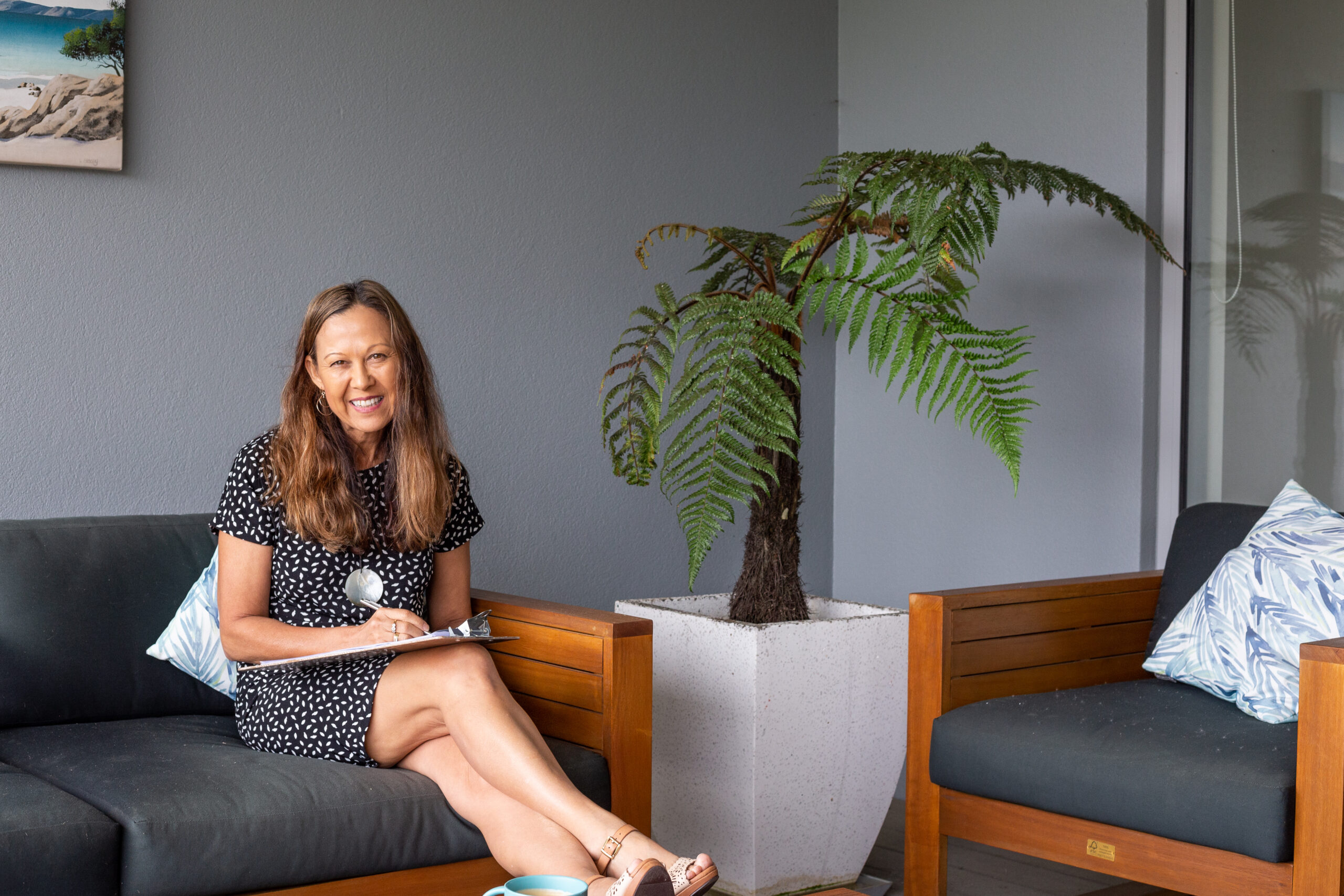
What are the earliest stories you remember hearing? The ones that told you about the world?
The earliest stories are from my preschool years, the ones my dad would tell me, often tales he’d made up himself. He was quite the storyteller. There were the tales of Horace and Aristotle, a couple of goofy frogs who lived in the creek at the bottom of our road in Whangarei. They had some hilarious adventures—you don’t realise how extremely perilous it is crossing the road when you are a frog. There were also stories about Professor Morgan and his famous ZZ-Burp steampunk creation, which the inventor cobbled together out of junk found in the garage. (The professor was modelled on my dad, who was renown for making anything you needed from a BBQ plate and an old bike tyre). When he’d perfected his creation, Professor Morgan would fly around the world helping people solve their problems and taking care of the environment. I learned a lot about storytelling, community service, and friendship from those made-up tales. Another favourite was Horton the Elephant by Dr Suess. Dad did the best Horton voice. He did a pretty good Maisey-the-Lazy Bird, too. And the book has that great message, about being true to your word, and persisting even when things get tough. Not a bad theme to live your life by.
What’s your favourite Bay of Plenty landscape, park, building, location, suburb, or side street? Why?
I love the view from the Minden Lookout. For many years, I would run up there most Wednesday mornings on a 16km training run, setting out in the gloom from near the Wairoa Bridge. Those stairs up to the summit are a killer! For years, a group of us would have a breakfast BBQ at the look-out a week out from Christmas. I’ll never get tired of that view. Because of an injury, I don’t run anymore, but even now, I’ll take my overseas guests on a jaunt up there, just to point out beloved places. I once wrote that view into one of my books, to capture it forever on the page, although, to be fair, a lot of the inspiration for my stories comes from the New Zealand landscape.
There are also some favourite nostalgic things that epitomise Tauranga for me that we don’t see now: the iconic hotel on the corner of Marine Parade and Adams Ave at the Mount, the shop mannequin with its waving arm outside Phillip’s Garage on Fraser, the pink (trojan) horse at the bottom of Fifteenth Ave, the Humpty Dumpty statue at Memorial Park, and the white chicken wire fence along the front of Otumoetai College.
What’s an average day in your life at present?
I write mostly dark speculative fiction, full-time from my home office overlooking a cow paddock in Welcome Bay.
What music was present and still memorable from your youth/adolescence?
Annie Crummer played at orientation week when I started university. And the following year, I recall some friends and I drove to Auckland for a Dire Straits concert the night before classes started. After the concert, we hot-footed it back to Hamilton and rolled bleary-eyed into the preliminary 7am lecture, only to discover it had been postponed until week 2. That was back when there was a night club on the corner of Red Square.
For you as a creative person, who are three influential artists or thinkers?
I have many influences, but how about I mention some local people who have inspired and motivated me? For example, there is no one like artist Rob MacGregor for capturing the vibrant essence of the Bay of Plenty. Anyone who’s had a chance to enjoy Rob’s paintings, particularly those of the base track of the mount, and the harbour, will appreciate the respect and love Rob has for this city and for the spectacular backdrop the region provides creative practitioners. Rob’s paintings portray a city full of energy and colour. Alive with generosity and promise. If you don’t know his work, then you need to look him up because you’re in for a treat. And since we are speaking of influential artists and thinkers, I will include Rob’s soul-mate, his late wife Joanne Rye MacGregor, a much-loved local personality who was a writer, teacher, filmmaker, performer, artist, and poet. Earlier this year, on the anniversary of her death, Rob released a collection of Joanne’s poetry, including the poem “Prey, Alone”, which she performed at a community learning class at Tauranga Boys’ College, somewhere around 2007 when I first met her. It was a powerful piece, distressing and poignant, so perhaps it appealed to the emerging horror writer in me, or perhaps I simply recognised a kindred spirit in her words. Thinking of that night, and the friendship that ensued between us, reminds me of the importance of shared learning for the well-being of community, so I am pleased to hear there are plans to re-introduce community education programmes in Tauranga.
A local thinker I’m fond of, a colleague and a friend, is Piper Mejia. Piper is the author-educator with whom I co-founded Young New Zealand Writers, a not-for-profit group providing development and publishing opportunities for New Zealand youth. I love her ideas about advocacy for student writers, about social justice, and empowering women. Over the past decade, the pair of us have spent hundreds of hours over tea and biscuits, plotting ways to inspire a new cohort of New Zealanders to fall in love with words, either through writing or reading. There is no one more can-do than Piper; her enthusiasm is infectious. She released her first collection this year, a confronting dark fiction study of the relationship between sisters, and it is a must-read. Available online and in all good bookstores, it’s called The Better Sister and Other Stories.
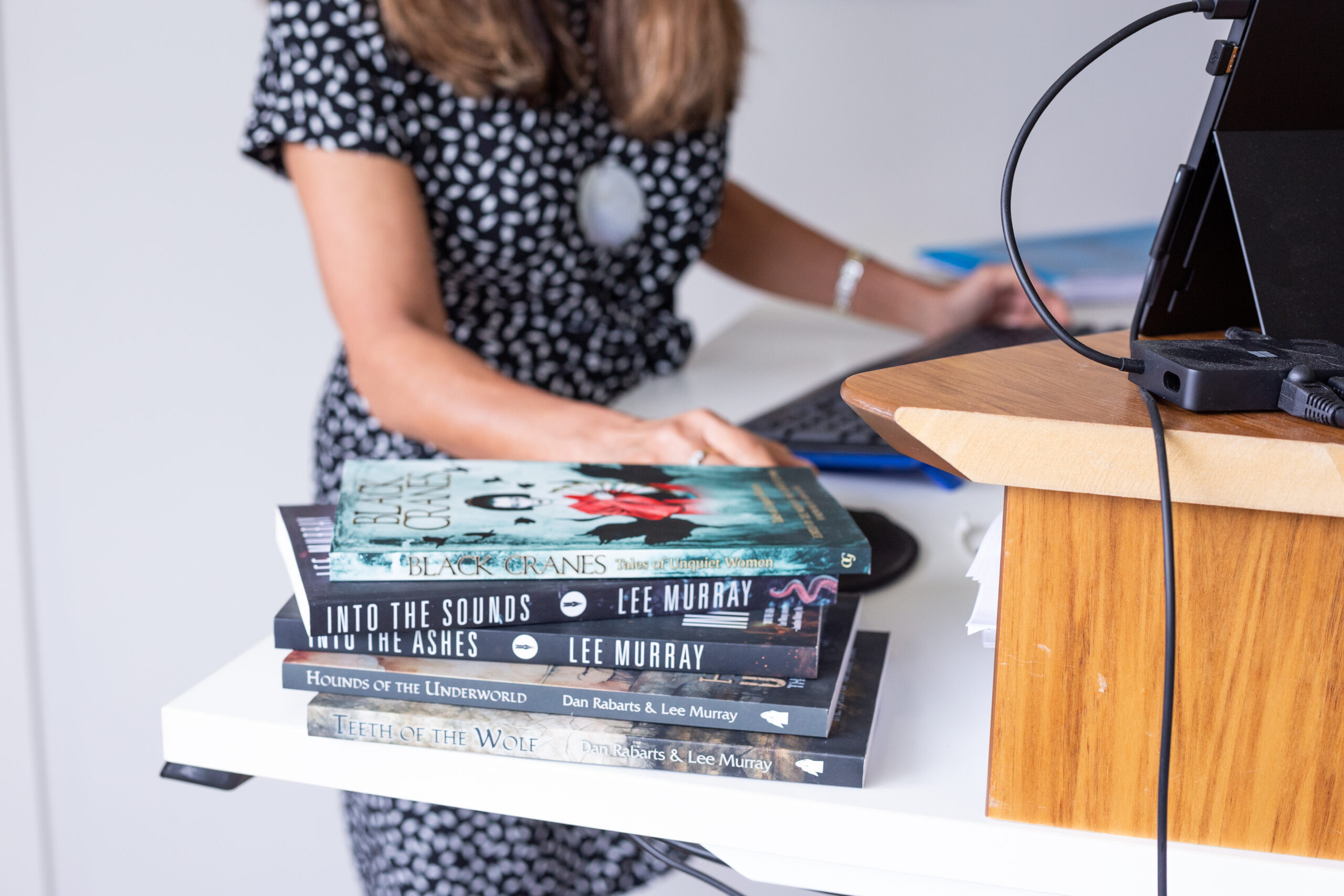
If you went away from the Bay of Plenty for a long time and then came back, what are the first three things you would do or visit?
When we lived abroad for those twelve years and would return home, my husband’s first instinct was to grab a meat pie, a Maketu meat pie preferably, and from the nearest service station, for that authentic taste of home. He would inhale it from the paper bag, often finishing it before we got on the highway south. For me, I used to love that first glimpse of Mauao as we came down the coast, and I’d get that sense of excitement about being home and seeing the family again. I loved to come back at the beginning of summer when the hebe bushes were in flower. You don’t see hebe in Europe or the United States, so for me, they were an indelible part of any homecoming. Even the ratty dusty ones in the roadside garden beds. But once we got here, we didn’t have to go anywhere much, because for thirty years, my parents lived in Bellevue, the house looking over the estuary and out to the Kaimai ranges, so there was an ever-changing kaleidoscope of colour, sunrises and sunsets, sail boats, and changing tides. Glorious. I spent a lot of time in my parents’ garden swing chair just looking out at that view. My dad used to say Tauranga was local call to heaven. Of course, I also loved to visit the beach, the soundshell, the Daisy Hardwick track, Fernland Spa, the Mount, the Matua waterfront, and the local fish ‘n’ chip shop.
Looking back at your childhood self: what one sentence describes that person?
Short Kiwi girl with her head in a book.
If you had to eat the same meal every day, what would it be?
Anything my mum cooks. But failing that, I love a breakfast of hot oatmeal with walnuts and sliced banana and sprinkled with cinnamon. And a cup of Havana coffee.
What are you planning for 2021 that nobody knows about yet?
I’m planning on writing a film treatment for one of my stories that an amazing film producer is going to option. Unfortunately, the amazing film producer doesn’t know about me or my books yet, but that’s the plan.
I have some books I hope to write, a novel and a narrative poetry collection, but since I’m a writer, that’s a given. The thing that nobody knows about yet is how those stories might play out, and that applies even to me, the author. Despite my rigorous planning, my characters love to take me off on tangents; no matter how much I like to think I’m the boss, it’s like they have minds of their own, subverting my original intent. Other times, I’ll stumble on a piece of research which will add another layer to my work—one of those eureka moments—so it’s always a surprise to see how a story might play out.
If the Prime Minister asked you to make up a new policy or law for New Zealand, what would it be?
I’d love to see legislation which reflects the vital role the arts have in fostering well-being, resilience, and preparedness of a community. Who didn’t read a book, watch a film, engage in a craft activity during lock down? The arts offer a way to process change, a means of coping, and also of escape. And yet a 2020 survey of essential roles showed that New Zealanders believe artists are the least essential among our citizens. The incongruence is confusing, even shocking, and I think that shows a general lack of understanding of what artists do and the psychological and emotional benefits to be gained through arts practice and participation, which are every bit as important as a daily walk. Anyone who read any zombie fiction in the past decade would have been fully prepared for the kinds of behaviours we’ve seen since the outbreak of Covid-19, for example. I believe if we build an environment in which the arts are cherished (all arts, not just the movie business) then not only will that result in sustainable careers, but we will build a stronger, more cohesive and compassionate community.
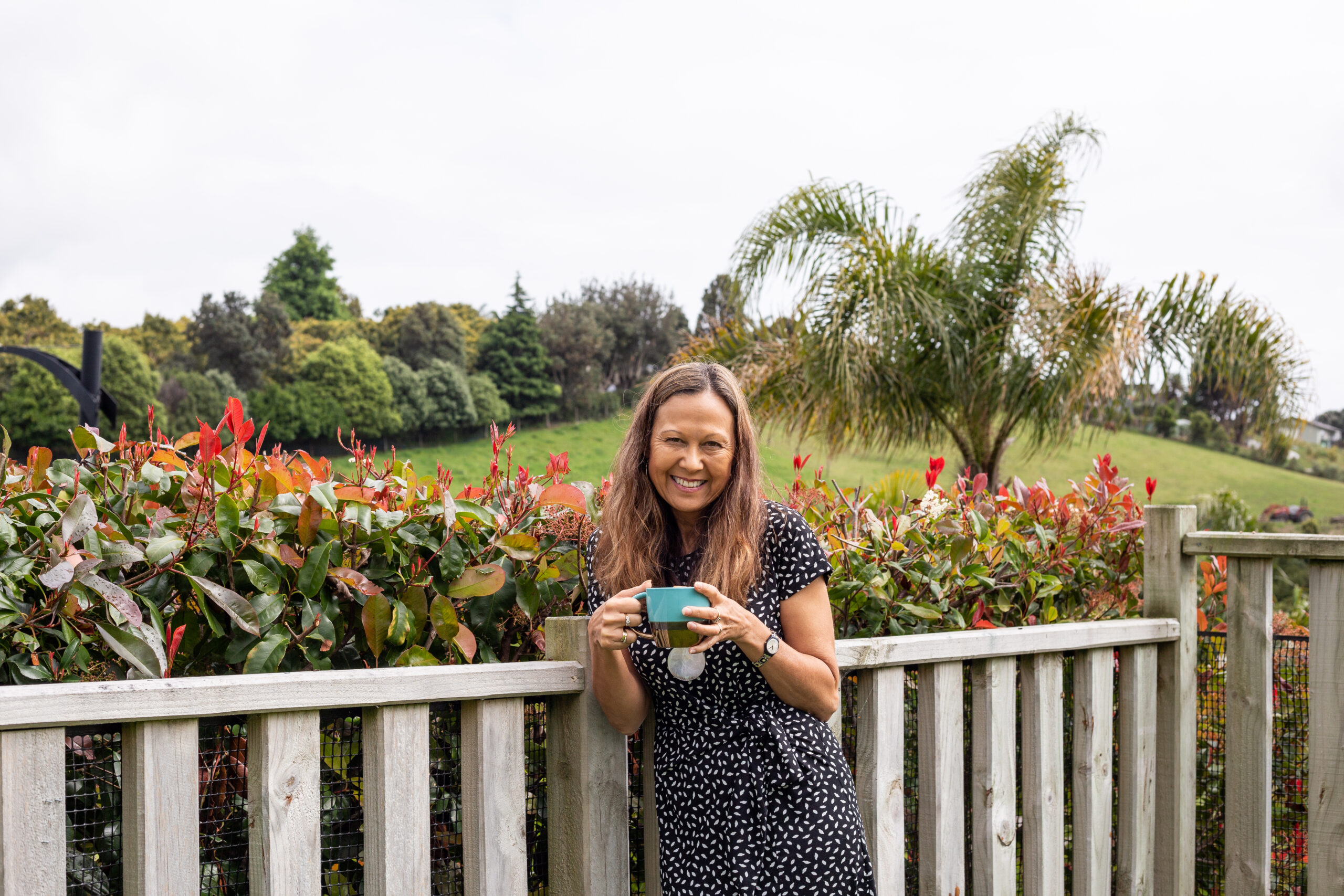
In one sentence, can you define art?
Any creative endeavour that records, interprets, re-imagines, and makes sense of the world; a vehicle for well-being, resilience, and joy.
What is missing or lacking from your Bay of Plenty community or environment?
I expect this question is intended to mine my feelings about rubbish collection or walking tracks. Maybe I’m supposed to complain about the lack of funding for libraries, or the traffic bottle neck at Turret Road in the mornings before school drop off. But I lost my lovely dad over the 2020 lockdown and since my affection for the Bay of Plenty is intricately bound to many wonderful memories of him, right now the thing I miss most is him. As I said earlier, my parents lived on a hillside in Bellevue. I’ll never forget the time my dad opened the garage and a gust of wind swept up a Swiss ball just inside the door and carried it off. Dad ran after it, down the hill, and into the reserve, the ball picked up by the wind again and again, always frustratingly out of reach. Meanwhile, the family were wondering where Dad had got to. We were getting worried. He hadn’t taken his phone. Eventually, he came back, sweaty and grumpy, his hair plastered to is head, and with the rescued ball under his arm. The family still giggle about it. Like that elusive ball, Dad is just beyond my reach now, but I’ll always feel a special connection to him here.
What word of advice would you offer an aspiring creative person?
Don’t wait. Do it now. There is no one else who can interpret the world the same way as you, no one with your voice, or your perspective. If you’re planning on writing, then start writing. Read a lot, and widely. Read critically. Read in your genre. Write some more. Revise. Read. Write. Take a deep breath and join a writing group—the Bay has some wonderfully supportive collectives—and get involved. Share your work with other writers. Listen to their critique. Reciprocate. Be kind, and tread lightly on people’s dreams. Revise again. Write some more. Murder your darlings. Send out your work. Rinse and repeat. I especially like the now-famous advice Ashton Kutcher gave at the 2013 Teen Choice Awards when he said: “I believe that opportunity looks a lot like hard work.” But trust me when I say it will be worth it. Like James Michener you’ll come to “love the swirl and swing of words as they tangle with human emotion.” And if you’re very lucky, readers will love it, too.
What’s the biggest problem about life in New Zealand? How would you solve it?
Whatever the problem is, kindness will go a long way to solving it.
What is your dream of happiness?
A good book, a beautiful day, the beach. My family around me. Laughter. Gulls, hovering on salt air. And a long lazy afternoon.
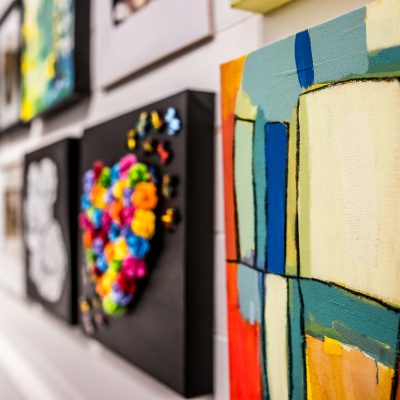
Creative Directory
Explore and connect with creative people, groups & spaces in Tauranga and Western BOP

